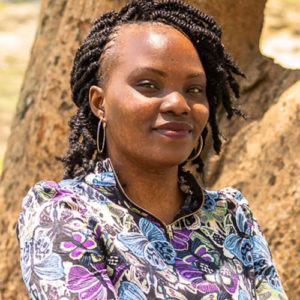
While campaigning in Lango sub region in 2015, President Museveni promised that if elected back into power, his government would provide school-going girls with sanitary pads. This and many other commitments have been made by the government of Uganda but we are still yet to see all these happen on paper and in reality.
Managing menstrual hygiene in low-income countries is difficult due to lack of access to feminine hygiene products and few adequate sanitary facilities among other factors. Uganda is predominantly a young nation with over 56% of its population under the age of 18 and about half (48.7%) under the age of 15 10 with over 9 million adolescents making up a quarter of the population in Uganda.[1] Yet for many, life is harsh; poverty, early marriage, teenage pregnancy, gender-based violence and low participation in secondary education make it difficult for young people to fulfil their potential.
Studies in Uganda have found that many girls struggle to attend and do well in school due to inadequate resources to manage their periods. “According to government statistics, only 57% of girls complete primary education in Uganda,” says Rashid Javed, Country Director of Plan International Uganda. “While the reasons are many and varied, it’s clear that poor menstruation provision has a big part to play. Uganda’s government is all too aware of the problem.”
According to the United Nations Children’s Fund, good Menstrual Hygiene Management (MHM) is defined as access to necessary resources and education about MHM for males and females.[2] MHM is a Sexual Reproductive Health issue where menstrual hygiene is fundamental to the dignity and wellbeing of women and girls and an important part of the basic hygiene, sanitation, and reproductive health services to which every woman and girl has a right. However, as a result of the taboos and stigma around menstruation, it has taken a considerable amount of time for MHH concerns to be addressed at the policy level in Uganda which means that the right to Menstrual Health “continues to receive limited attention in policies, research priorities, programs, and resource allocation.”[3]
Under Article 33 of the 1995 Constitution of the Republic of Uganda, the State commits itself to giving women equal status with men in the society; to provide the facilities and opportunities necessary to enhance the welfare of women to enable them to realize their full potential and advancement; to protect women and their rights, taking into account their unique status and natural maternal functions in society. A review of the district development plans revealed that MHH is not prioritized and therefore budgeted for. It is implied in different Programmes instead, thus making it lose the adequate attention it would deserve from sectors. Under the Article 21(4) of the said Constitution, the Parliament of Uganda is obligated to implement policies and programs aimed at addressing social, economic, educational, or other imbalances in society therefore the Government must invest in menstrual health as MHH remains a neglected component that affects many girls and women, especially those still in school.
Poor access to menstrual health and hygiene has harmful effects on the right to education of girls. Article 12 of the Maputo Protocol seeks to protect this right by urging States to eliminate all forms of discrimination against women and guarantee equal opportunity and access in the sphere of education and training. Therefore, one way in which States can ensure that girls are not impeded from accessing their right to education is by ensuring that there is adequate access to the right to MHH
We hereby continue to call upon the President and the Office of the first lady to honour their pledge to distribute free sanitary pads to girls in schools so as to help alleviate the inequality perpetuated by period poverty in Uganda, especially the taboos and stigma that depict it as dirty, shameful, and as something which should be hidden. Failure to prioritize Menstrual Health as a human right has far-reaching negative impacts on the lives of young girls and women such as a restriction of their mobility, freedom and choices; affecting attendance and participation in school and community life; compromising their safety, and causing stress and anxiety.
#MHDay2022
#WeAreCommitted
#EndPeriodStigma
#EndPeriodPoverty
Authored by: Achola Elizabeth Brenda. O
Legal Officer at The Women’s Probono Initiative (WPI).
Email: lizachola3@gmail.com
Tel: 0778-659345
[1] https://www.unicef.org/uganda/what-we-do/adolescent-development last visited on 23rd March 2021
[2] Unicef,2012
[3] Winkler and Roaf, “Taking the Bloody Linen Out of the Closet,” 11

